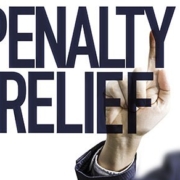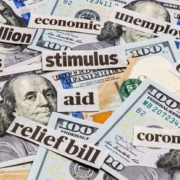New Law Makes Changes to Business Meal Deductions and PPP Loans
- Find out how the Consolidated Appropriations Act of 2021 (CAA) changed business meal deductions for the better.
- Learn the limitations to the new law and how to ensure your business meals remain deductible.
- The new law added money to the Paycheck Protection Program and extended it. Find out how long the extension lasts!
- Discover how the new law clarifies the tax consequences of PPP loan forgiveness.
- Learn more about the waiver of information reporting for PPP loan forgiveness.
The COVID-19 relief bill, signed into law on December 27, 2020, provides a further response from the federal government to the pandemic. It also contains many tax breaks for businesses, including increases to business meal deductions and favorable changes to PPP loans. Fiducial has some highlights of the Consolidated Appropriations Act of 2021 (CAA), which also includes other laws within it.
Business meal deductions increased
The new law includes a provision that removes the 50% limit on deducting business meals provided by restaurants. It makes those meals fully deductible–good news for many businesses.
As background, you may generally deduct ordinary and necessary food and beverage expenses incurred while operating your business. However, for 2020 and earlier years, the deduction is limited to 50% of the allowable expenses.
The new legislation adds an exception to the 50% limit for expenses of food or beverages provided by a restaurant. This rule applies to expenses paid or incurred in calendar years 2021 and 2022.
The use of the word “by” (rather than “in”) a restaurant clarifies that the new tax break isn’t limited to meals eaten on a restaurant’s premises. Takeout and delivery meals from a restaurant are also 100% deductible.

Note:
Other than lifting the 50% limit for restaurant meals, the legislation doesn’t change the rules for business meal deductions. All the other existing requirements continue to apply when you dine with current or prospective customers, clients, suppliers, employees, partners, and professional advisors with whom you deal with (or could engage with) in your business.
Therefore, to be deductible:
- The food and beverages can’t be lavish or extravagant under the circumstances, and
- You or one of your employees must attend the meal when the food or beverages are served.
If your business provides food or beverages at an entertainment activity (such as a sporting event or theater performance), either you must purchase them separately from the entertainment or state their cost on a separate bill, invoice, or receipt. This is required because the entertainment, unlike the food and beverages, is nondeductible.
PPP loans
The new law authorizes more money towards the Paycheck Protection Program (PPP) and extends it to March 31, 2021. There are a couple of tax implications for employers that received PPP loans:
- Clarifications of tax consequences of PPP loan forgiveness. The law clarifies that the non-taxable treatment of PPP loan forgiveness provided by the 2020 CARES Act also applies to certain other forgiven obligations. Also, the law makes clear that taxpayers who have their PPP loans or other obligations forgiven, may take deductions for otherwise deductible expenses paid with the proceeds. In addition, the tax basis and other attributes of the borrower’s assets won’t be reduced as a result of the forgiveness.
- Waiver of information reporting for PPP loan forgiveness. Under the CAA, the IRS allows the waiving of information reporting requirements for any amount excluded from income under the exclusion-from-income rule for forgiveness of PPP loans or other specified obligations. (The IRS had already waived information returns and payee statements for loans guaranteed by the Small Business Administration).
Much more
These are just a couple of the provisions in the new law that are favorable to businesses. The CAA also provides extensions and modifications to earlier payroll tax relief, allows changes to employee benefit plans, includes disaster relief and much more. Do you have questions about your situation? Call Fiducial at 1-866-FIDUCIAL or make an appointment at one of our office locations to discuss your situation.
Ready to book an appointment now? Click here. Know someone who might need our services? We love referrals!
For more small business COVID-19 resources, visit Fiducial’s Coronavirus Update Center to find information on SBA loans, tax updates, the Paycheck Protection Program, paid sick and family leave, and more.









